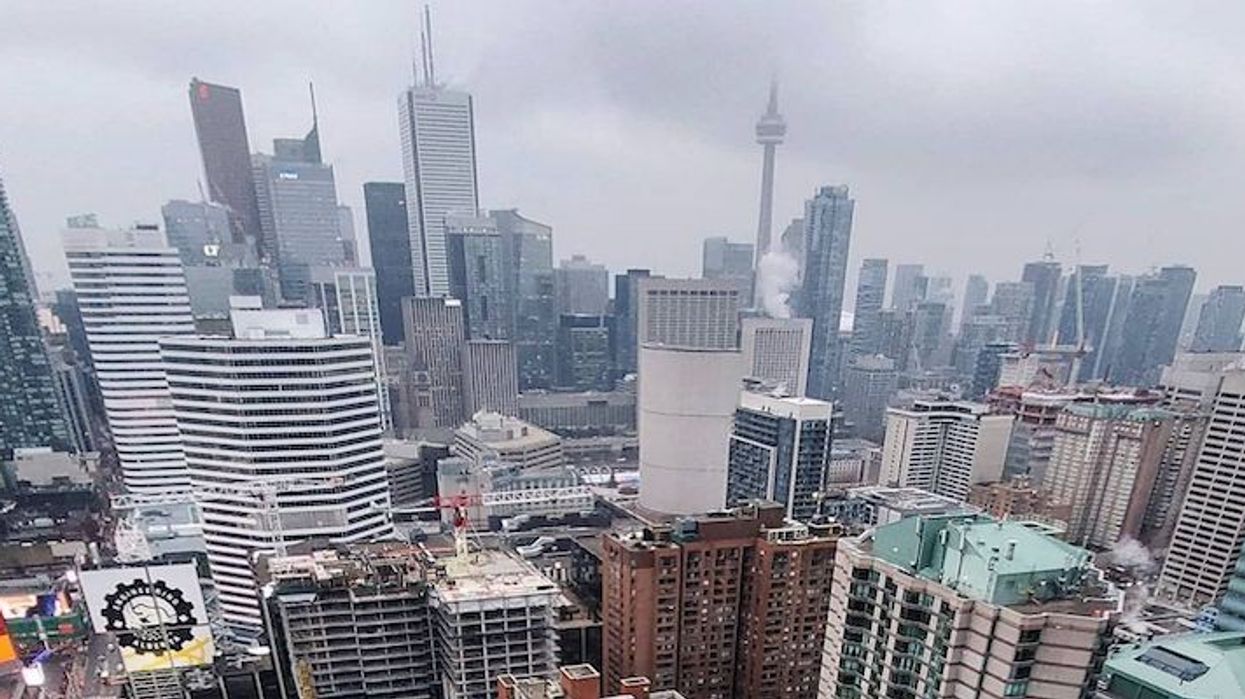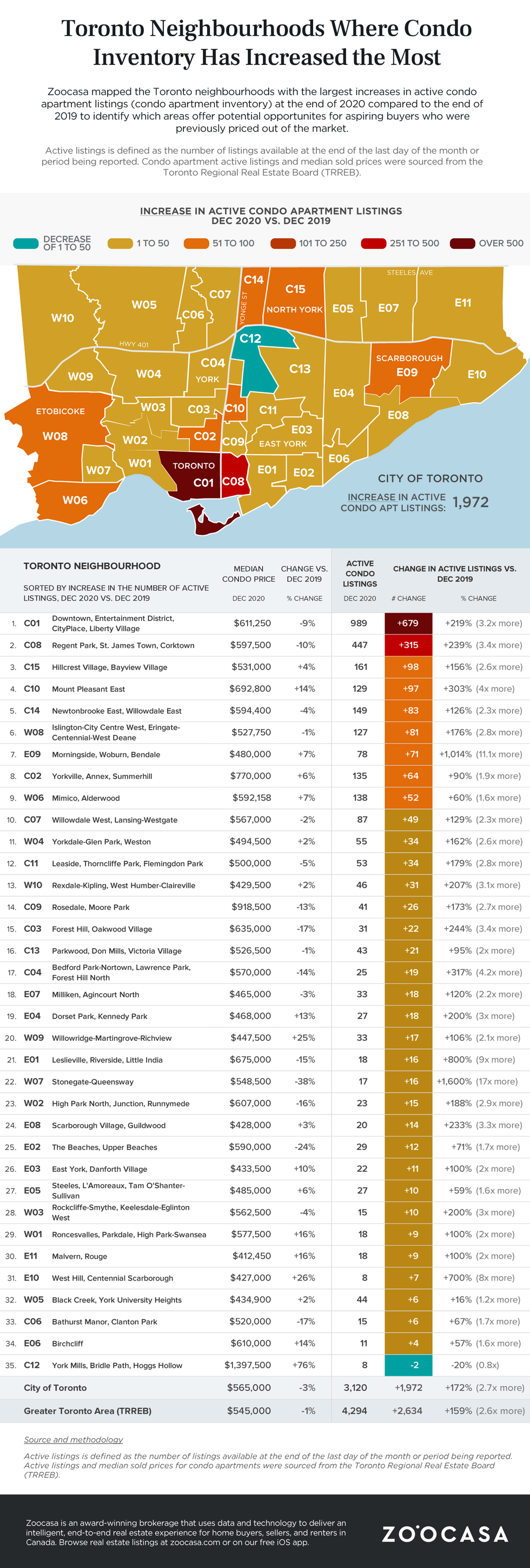It's no secret that COVID shifted the priorities and buying behaviours of Toronto homeowners, with many residents moving to the burbs where larger -- and often more affordable -- housing options prevail.
As a result, demand for condominiums in condo-dense cities like Toronto has slowed -- though some could say only temporarily -- with average prices seeing a dip in December.
When compared to the same time in 2019, this is an abrupt change, when condo prices were up 10% year-over-year, demand was soaring, and bidding wars were the norm.
To get a better understanding of condo demand (or the lack thereof) in the city, Zoocasa recently examined condo market activity in 35 neighbourhoods across Toronto. To achieve this, Zoocasa compared the number of active listings for condo apartments (the inventory of available condos) across these neighbourhoods at the end of December 2020 to December 2019.
To further narrow the findings down, Zoocasa also calculated changes in the median condo apartment price -- the price at which half the condos that sold, sold for a higher price than the median and where the other half sold for a lower price than the median price.
READ: The First Half of January Shows the Toronto Condo Market on Fire
Overall, the data showed that Toronto had 1,972 more active listings for condo apartments in December 2020 compared to the previous year. This worked out to be 3,120 active condo listings at the end of December -- a 172% increase year-over-year or 2.7x more active listings than at the end of December 2019.
But when dialling down into specific Toronto neighbourhoods, the number of active listings varies greatly, with some pockets seeing 3.2x to 3.4x more active listings at the end of December compared to the previous year.
Unsurprisingly, downtown Toronto (C01) -- which spans the Entertainment District, CityPlace, and Liberty Village -- has taken the biggest hit, with the highest increase in active condo listings.
According to the data, this neighbourhood saw a "whopping" 219% increase or 3.2x more condo inventory at the end of December compared to the previous year. To be specific, this area had 989 active listings in December compared to 310 during the same time of the year prior. What's more, the median sales price also dropped 9% or -$58,750 to $611,250.
Anthony Tomasone, a Zoocasa real estate agent in Toronto, says the drastic increase in condo inventory in C01 is notable.
“In 2019, C01 was one of the most competitive neighbourhoods in the city. Seeing new listings double, and active listings triple in the span of a year is a testament to the impact that COVID-19 has had on homebuyers in the short run,” said Tomasone.
Following the downtown core is the C08 neighbourhood, which spans Regent Park, St. James Town, and Corktown, where the median home price dipped 10% to $597,500 year-over-year. Zoocasa says there was a 239% increase in active listings in this area compared to December 2019, with 315 or 3.4x more active listings available in the neighbourhood at the end of last month.
Rounding out the top three is the area of C15, which encompasses Hillcrest Village and Bayview Village, where, despite a 156% increase in active listings, median home prices remained relatively steady -- posting a 4% increase to $531,000.
“For buyers that are looking to get a foothold into the market and thinking about the long term, now might be a good opportunity to consider a condo, particularly in the downtown core," says Tomasone.
"Compared to the same time the year before, buyers have more options and less competition, better prices, and lower interest rates -- all favourable conditions for first-time buyers that may otherwise have been priced out of the market."
It's important to keep in mind that while this report looked at how 2020 concluded, it didn't look at where the condo market is already heading. Case in point: January has already seen condo sales nearly double the activity of 2020 on a year-to-date basis.
Toronto realtor and chartered accountant Scott Ingram shared a visual of the year’s activity thus far on Twitter; the graph shows the month’s condo sales, recorded on January 15, up 92% over those of 2020.
What’s more, Ingram shared exact sales numbers from the same period for the last three years: 350 condos were sold from January 1 to 15, 2019; 429 were sold in 2020, and 822 were sold in 2021, according to the Toronto Regional Real Estate Board’s MLS data.
Meanwhile, freehold sales are up 73% year-over-year, and illustrating a three-year growth trajectory of 172 sales in 2019, to 183 in 2020, and finally 316 in 2021.
That being said, as Tomasone pointed out, now might just be the best time to jump on the condo market, particularly in the downtown core, where competition is down and condo prices are varied, coupled with the historic low-interest rates, making it a prime window of opportunity for first-time buyers.
With files from Kayla Gladysz.






















